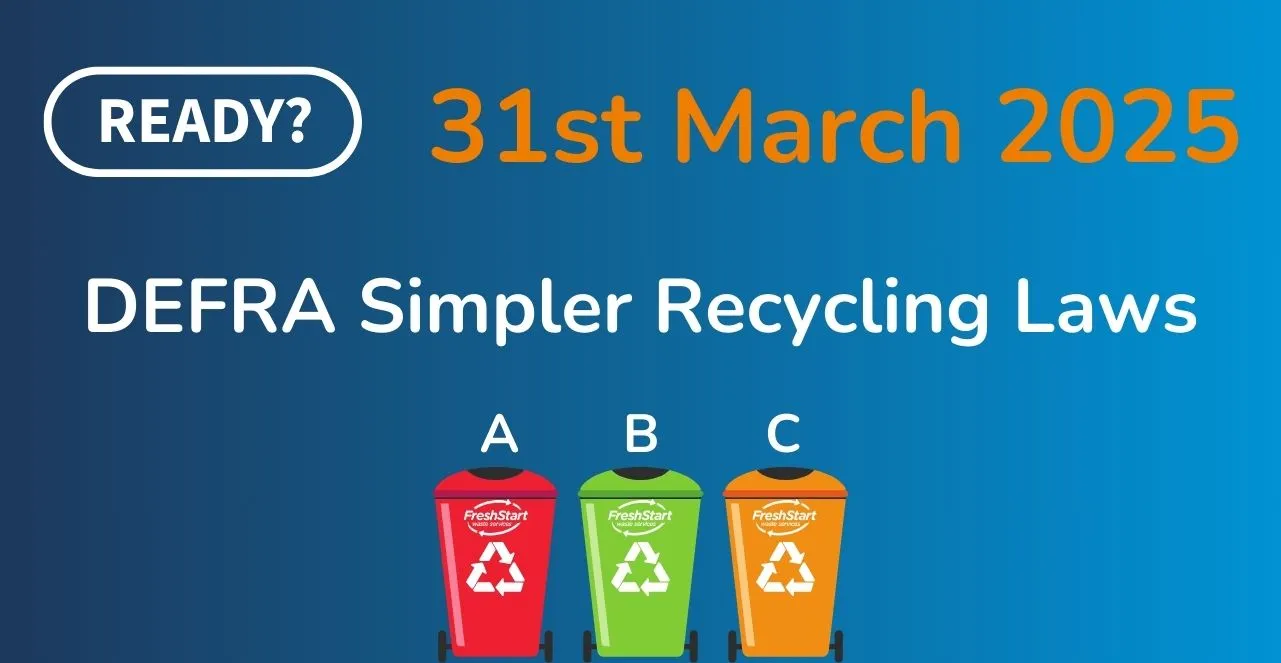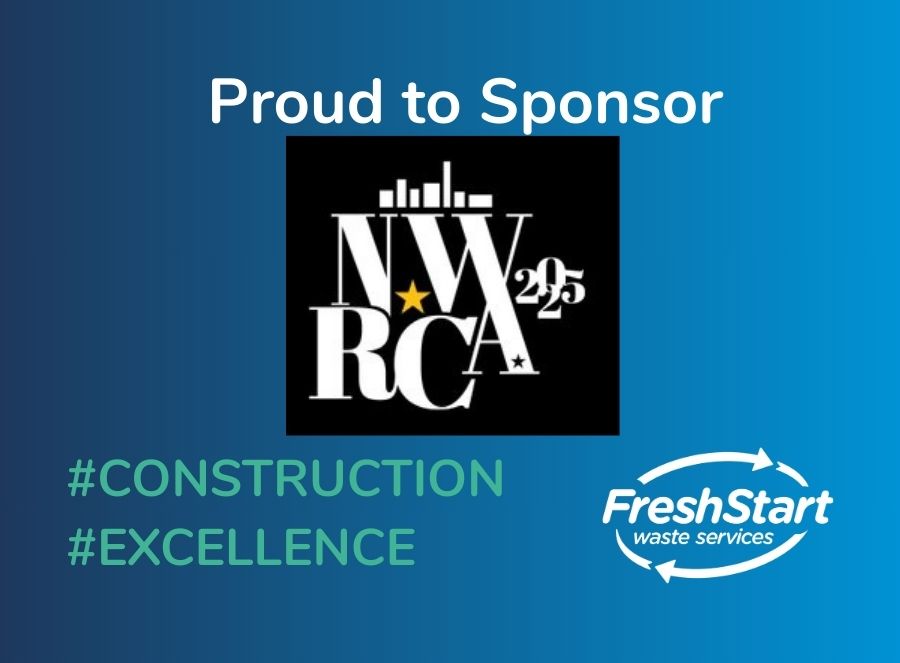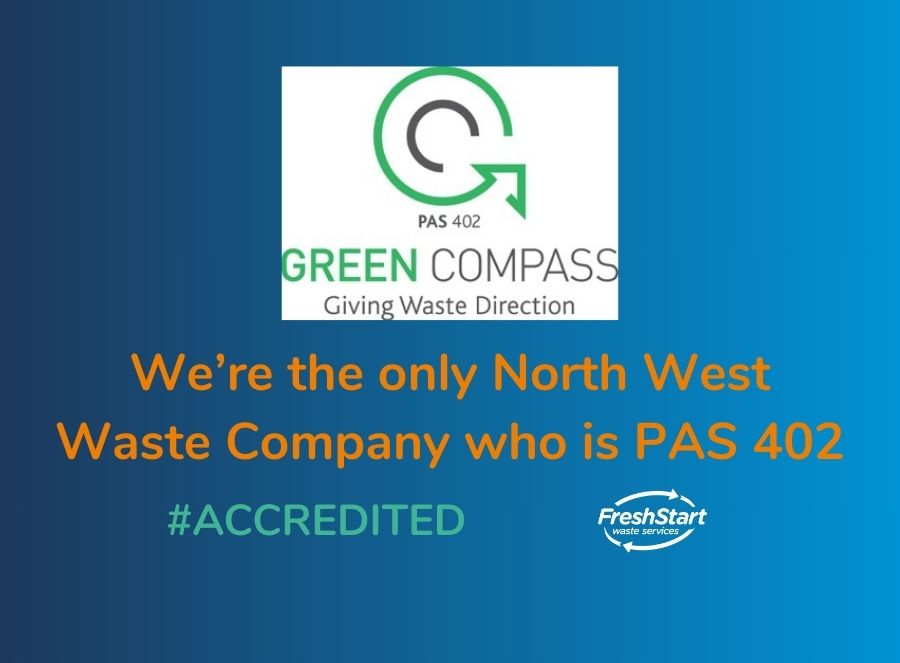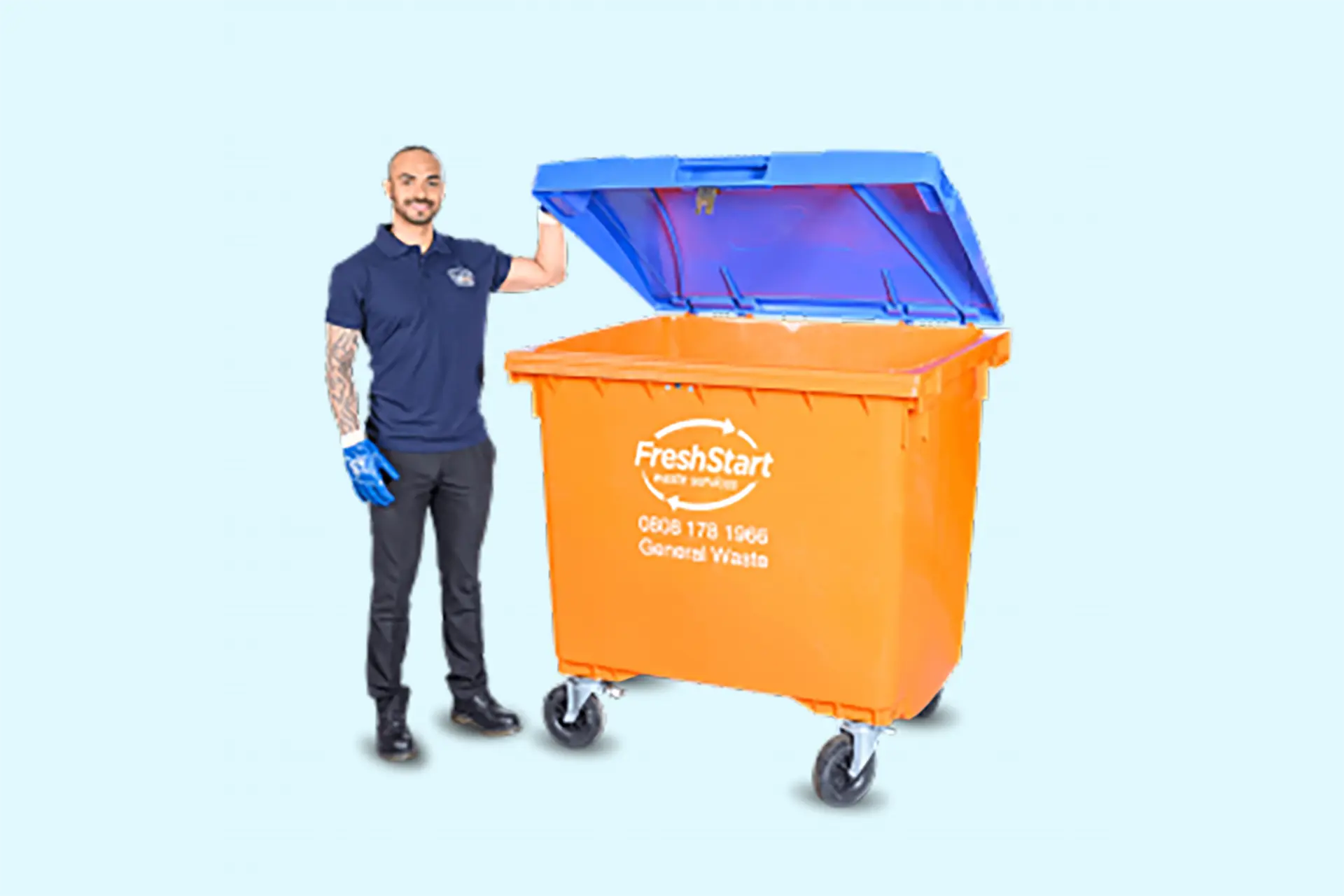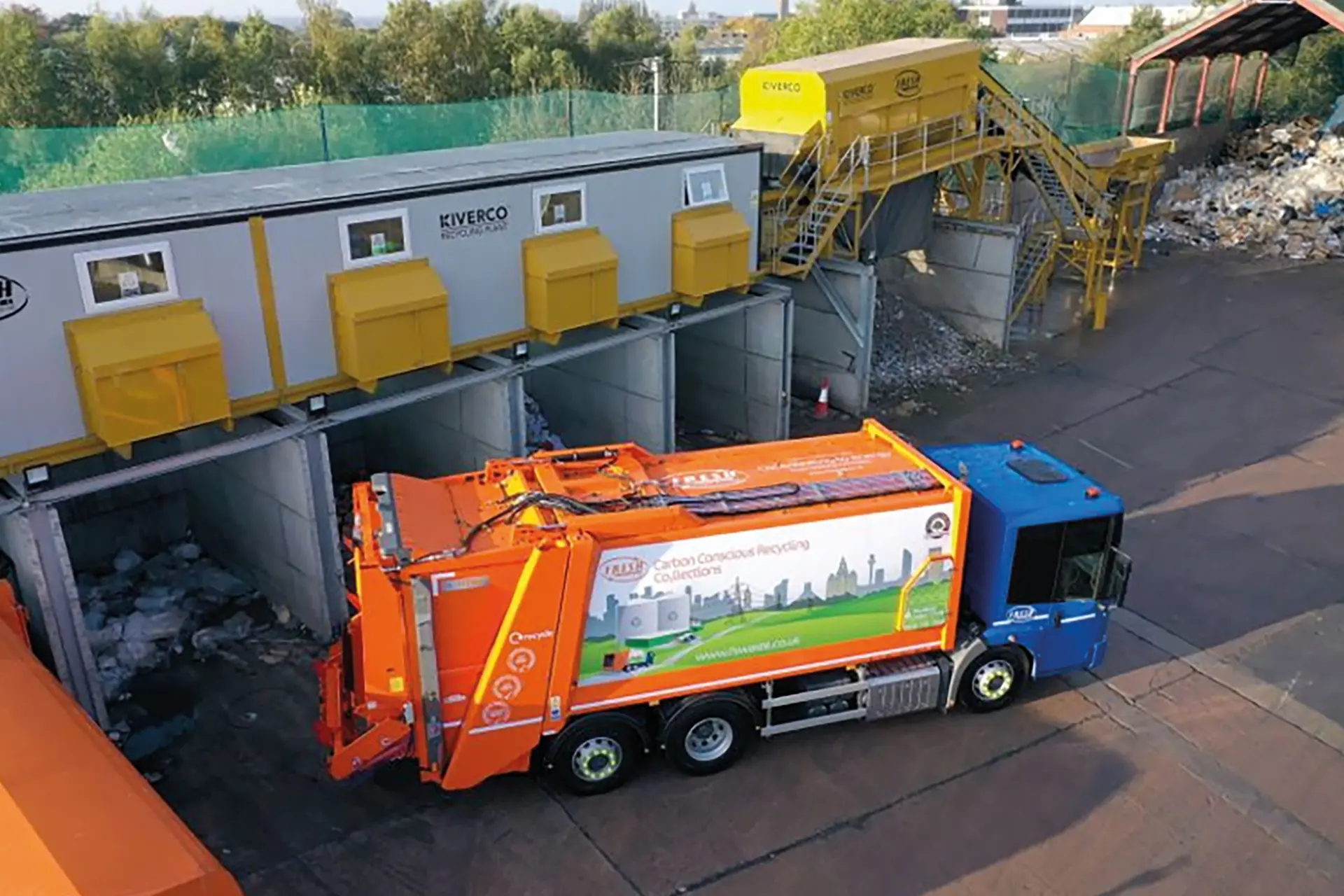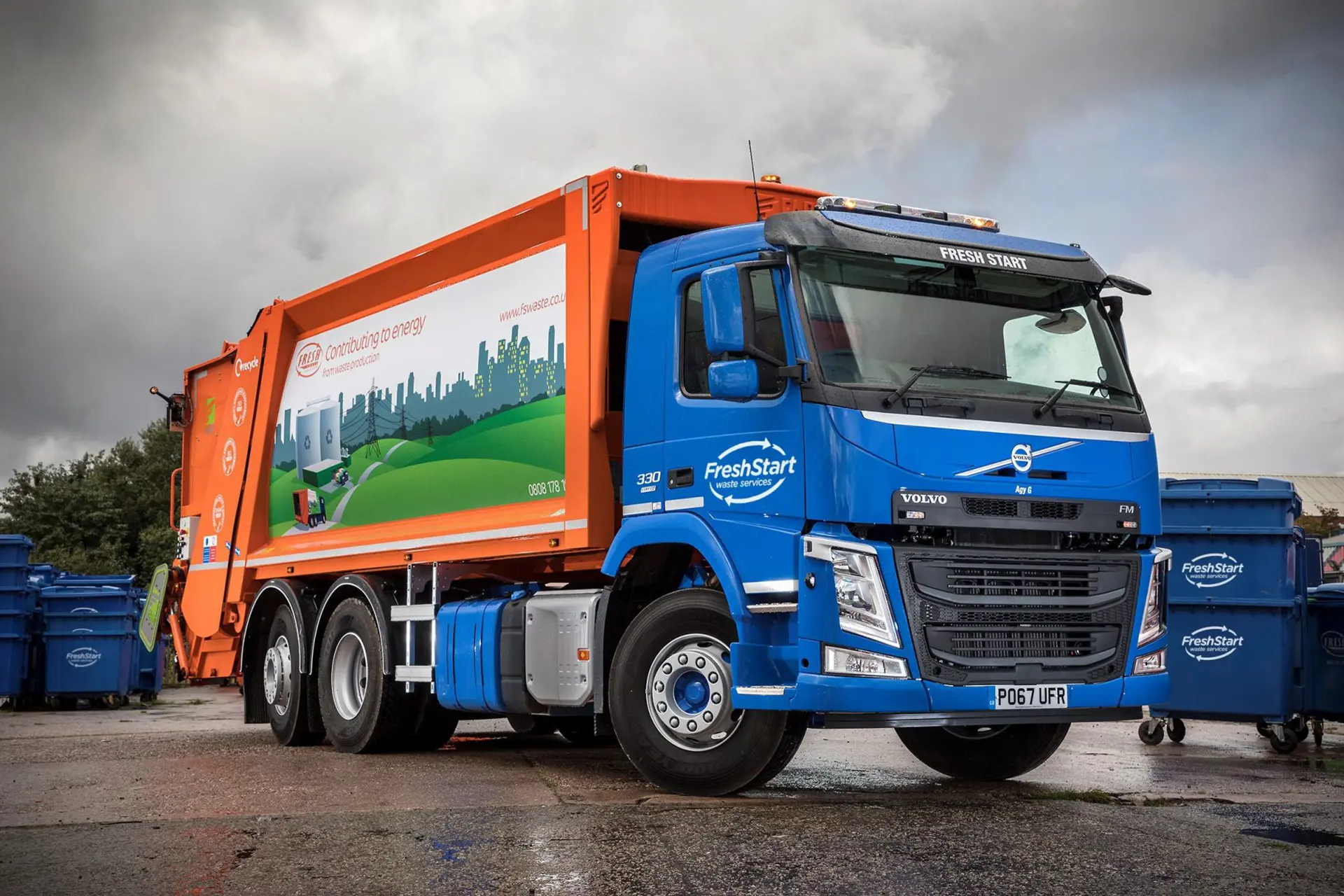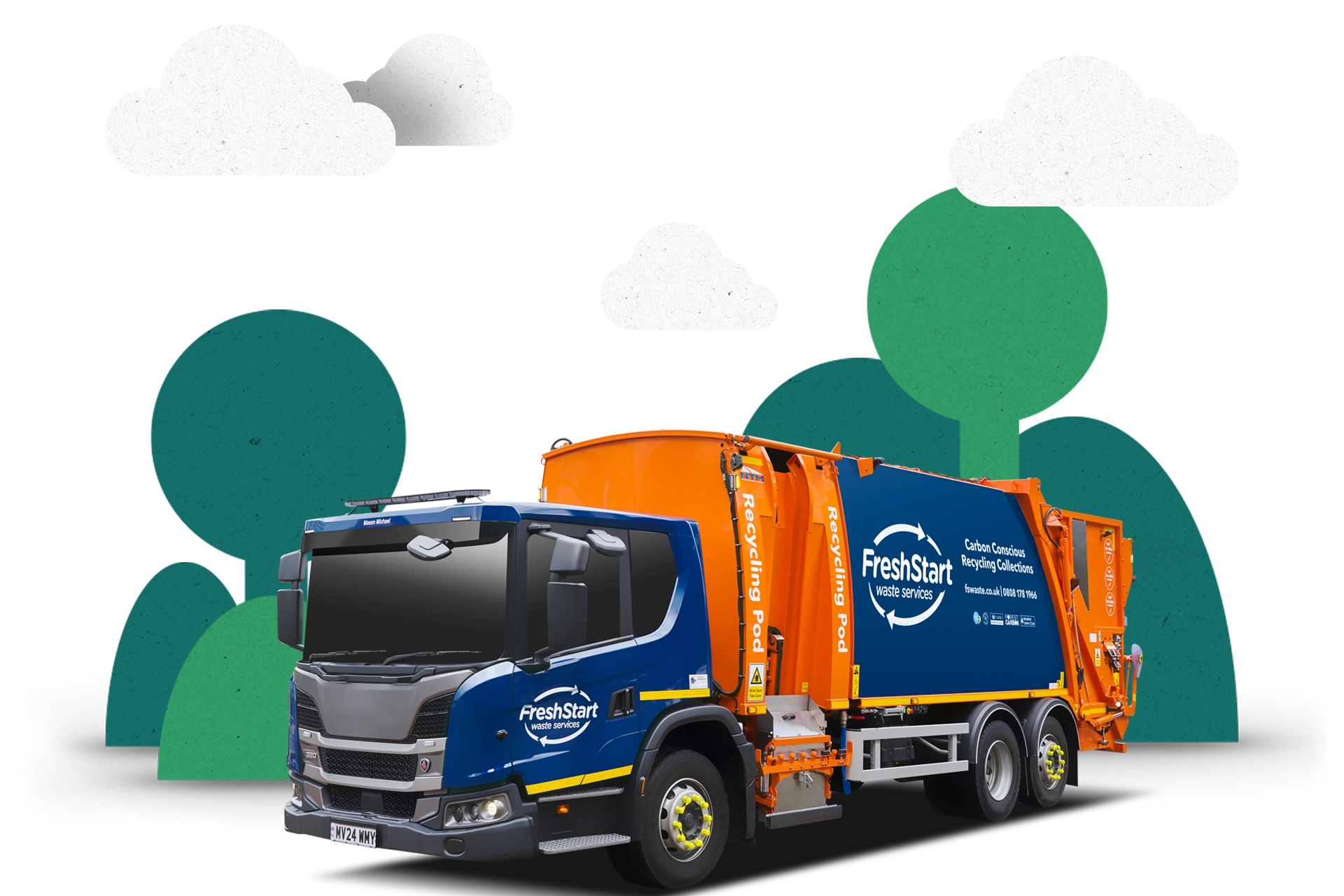Polystyrene is everywhere—from packaging materials to takeaway containers—but when it comes to recycling, things get tricky. You might be wondering, can polystyrene go in the recycling bin? Or more specifically, can you put polystyrene in the recycling at all? The short answer is, it depends.
Despite being lightweight and versatile, polystyrene recycling isn’t as straightforward as recycling paper or glass.
In this post, we’ll dive into the challenges of recycling polystyrene, what your local facilities may accept, and whether there’s a polystyrene recycling bin option available.
If you’re unsure whether polystyrene goes in recycling, our team at FS Waste have the answers to help you make an informed decision.
If you’re looking for guidance on polystyrene recycling, contact FS Waste today!
What Is Polystyrene?
Polystyrene is a lightweight, synthetic plastic made from styrene, a petroleum-based compound. It’s widely used in the UK for packaging, insulation, disposable cups, and food containers due to its durability and malleability.
There are two main forms of polystyrene, Expanded Polystyrene (EPS) and Extruded Polystyrene (XPS). EPS is often used for packaging, whereas XPS is used for insulation.
Why Is Polystyrene Good For Packaging?
Polystyrene is ideal for packaging primarily because it’s lightweight, which means it doesn’t add extra weight to shipments.
Despite being light, polystyrene offers excellent cushioning, helping protect products from damage during transit. It’s also a cost-effective option compared to other packaging materials like cork.
However, the main drawback is its limited recyclability, which poses environmental concerns.
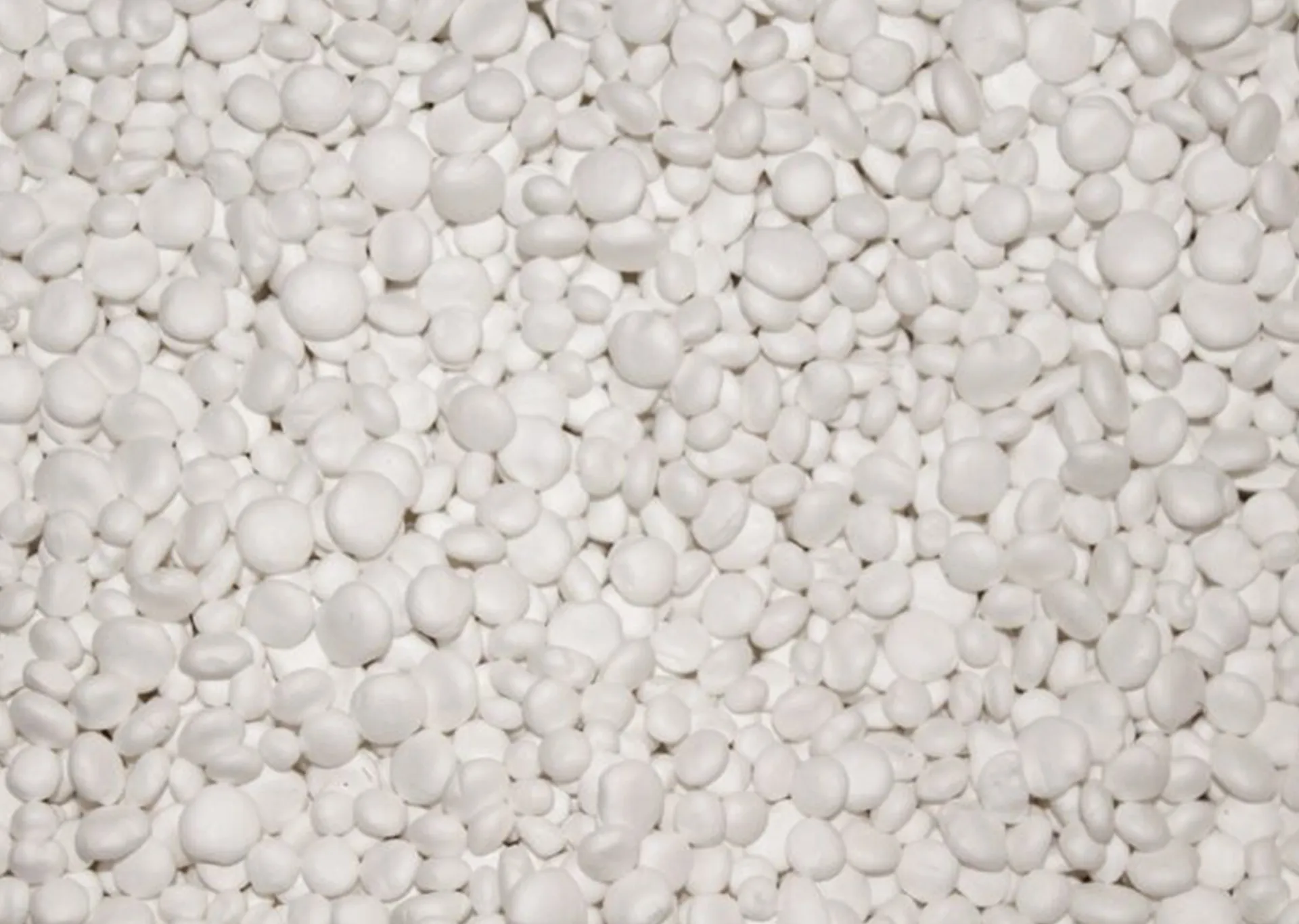
Styrofoam vs Polystyrene
Polystyrene and Styrofoam are similar products; however, they are not the same thing. Polystyrene is a type of plastic and Styrofoam is a trademarked brand of expanded polystyrene foam.
Styrofoam is a specific type of polystyrene used primarily for construction insulation or packaging.
People often refer to all types of polystyrene foam products as Styrofoam, but technically, Styrofoam is just one form of polystyrene!
So, if you were wondering ‘is styrofoam recyclable’, keep reading, as we explore polystyrene recycling below.
Is Polystyrene Recyclable In The UK?
You can recycle polystyrene in the UK; however, as polystyrene is slow to biodegrade, it is important that you know how to recycle polystyrene and styrofoam properly.
Polystyrene’s versatility is one reason it is among the most common types of plastic. From takeaway food trays through to a packaging material, it has dozens of uses.
However, the UK currently lacks the infrastructure to recycle polystyrene on a large or local scale, making it important to dispose of it correctly to minimise environmental impact.
Businesses in the UK can arrange for polystyrene recycling collection through a licensed waste removal company, such as FS Waste.
The collected polystyrene is then transported to a recycling facility where it is sorted, cleaned, and processed for recycling, where possible.
Using a commercial waste company helps ensure proper disposal and reduces environmental impact, making it a sustainable choice for businesses handling large volumes of polystyrene waste.
If you’re looking to recycle polystyrene responsibly, contact FS Waste today! We provide licensed waste removal services to help UK businesses manage their polystyrene waste effectively.
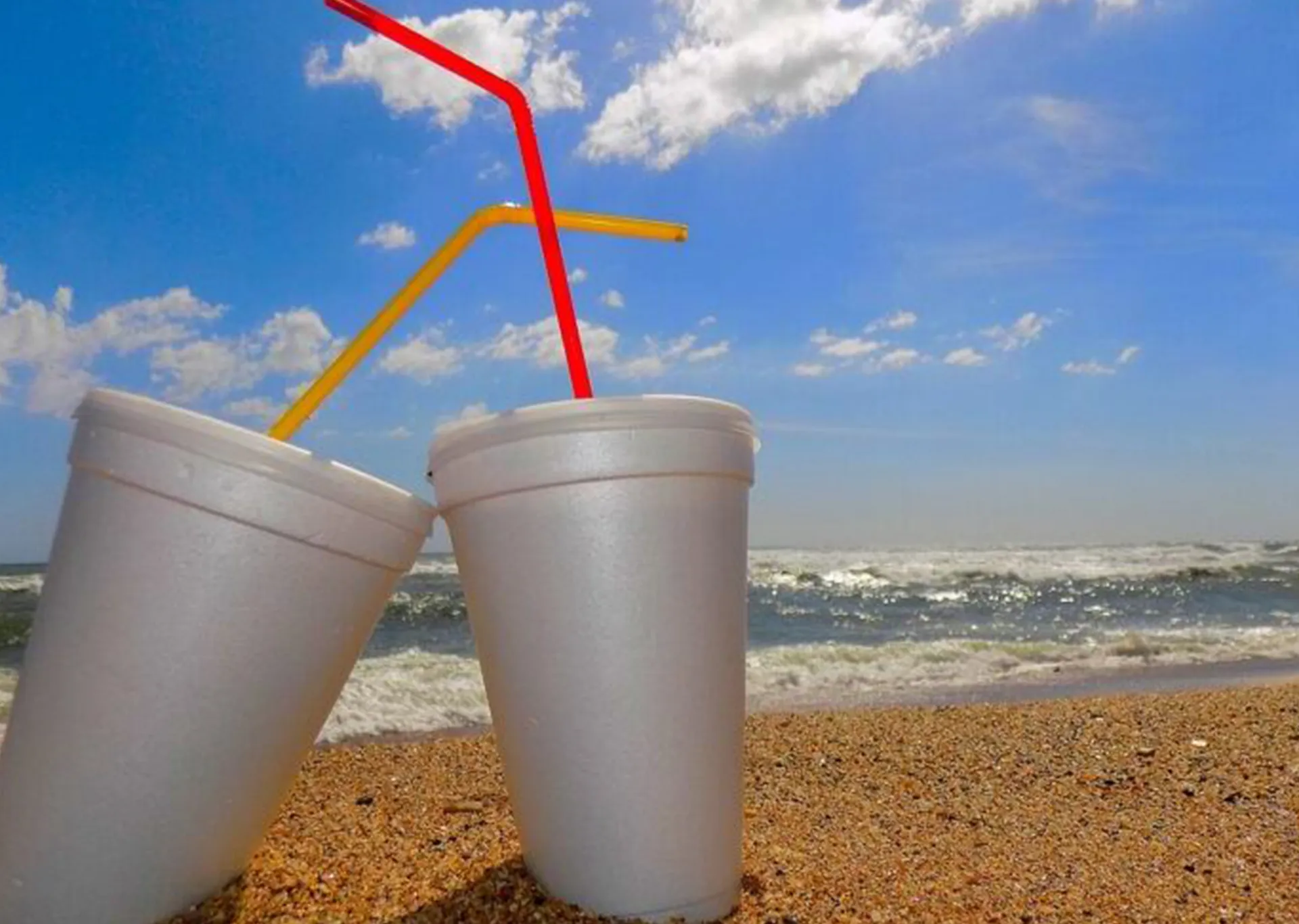
How Is Polystyrene Recycled?
Polystyrene can be recycled through specific processes tailored to its two main types: Expanded Polystyrene and Extruded Polystyrene.
Most people are familiar with Expanded Polystyrene, or EPS, commonly used as takeaway food containers or as packaging to protect white goods.
Expanded Polystyrene recycling typically involves the material being collected, sorted, and cleaned before being processed into small beads. The polystyrene beads are then melted down and made into new products, such as insulation panels or packaging materials.
Extruded Polystyrene recycling, on the other hand, typically involves the material being ground into granules and mixed with virgin polystyrene to create new products. However, this process requires specialised facilities, which are often limited in many areas, making XPS recycling more challenging.
According to the Expanded Polystyrene Group, part of the British Plastics Federation Trade Association, over half of all Expanded Polystyrene packaging is recycled. Each year, UK businesses process thousands of tonnes of EPS from significant commercial waste streams, primarily generated by manufacturers and retail giants.
Despite the damage discarded plastics cause to the planet, polystyrene has strong environmental credentials. It is extremely lightweight, insulates efficiently, and has a low carbon footprint – given that 98 percent of it is air – that does not generate waste while being manufactured.
Perishables shipped in EPS have a longer shelf life, leading to less food waste. It is also the safest method of transporting temperature-controlled goods and medicines – even human organs for transplants.
A substitute alternative for EPS is unlikely any time soon.
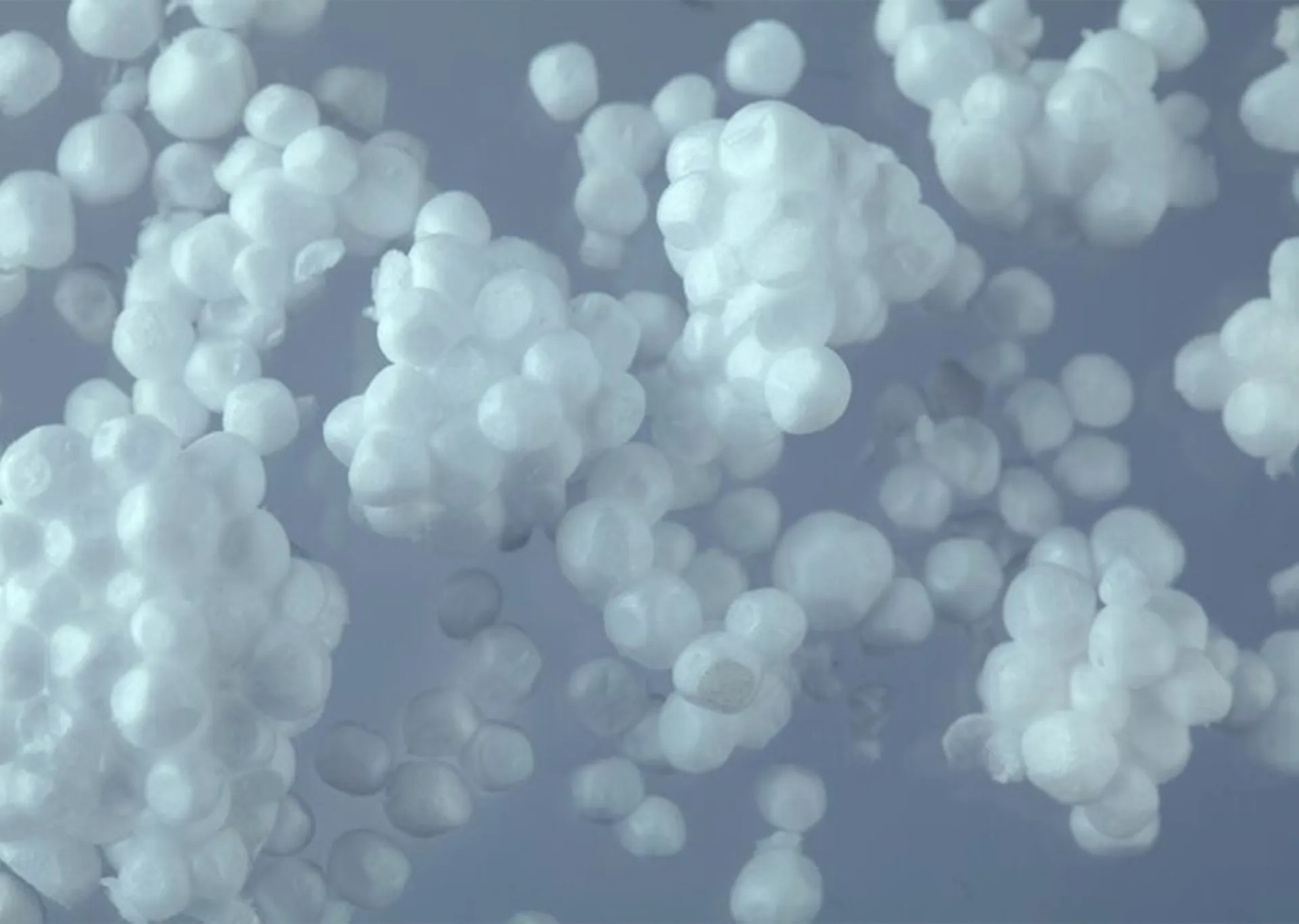
What Bin Does Polystyrene Go In?
In the UK, polystyrene isn’t recyclable on regular kerbside collections. Styrofoam is an extruded polystyrene foam, and as such, isn’t picked up, either.
The advice from Recycle for Greater Manchester (R4GM), which works together with local councils in Bolton, Bury, Manchester, Oldham, Rochdale, Salford, Stockport, Tameside, and Trafford to encourage residents and businesses to manage their waste responsibly, is to put polystyrene in the general waste bin.
Some local authorities elsewhere in the country accept polystyrene packaging for collection, although it is unlikely to be recycled.
For large amounts, businesses can arrange for commercial polystyrene collection by licensed waste companies to ensure proper waste collection and recycling.
If you are unsure if your area allows for polystyrene or styrofoam recycling, you can check Recycle Now – the Government-funded national recycling campaign for England – and enter your postcode into the Recycling Locator.
Why Don’t Councils Recycle Polystyrene?
Although lightweight, polystyrene is bulky, making it difficult to collect and transport. When left at the kerbside, it is prone to being blown away.
Additionally, materials intended for recycling must be free from contaminants, which makes recycling polystyrene that is used from food packaging such as cups for hot drinks more problematic.
Low-density polystyrene can undergo a granulation process, where beads are separated and mixed with unused granules to create new products. However, this process is costly and not widely implemented.
If you need polystyrene recycling, contact FS Waste today! We can help businesses with a range of commercial waste collections.
What To Do With Used Polystyrene
There are many ways to reuse old or waste polystyrene, such as using it to cushion your own packages. Expanded polystyrene and thermocol sheets are designed to protect items, so finding ways to repurpose them helps reduce landfill waste, where polystyrene takes a long time to decompose.
Repurposing polystyrene isn’t as difficult as you might think. You can:
- Use polystyrene cups for seedlings, or you could break up polystyrene foam and put it in plant pots to aid drainage
- Transport frozen products during a defrost or house move
- Keep food and drink items cold in polystyrene boxes
- Wash and reuse egg cartons or food trays to use as an artist’s palette or for crafts
- Use packing beads to stuff toys, pillows, or bean bags
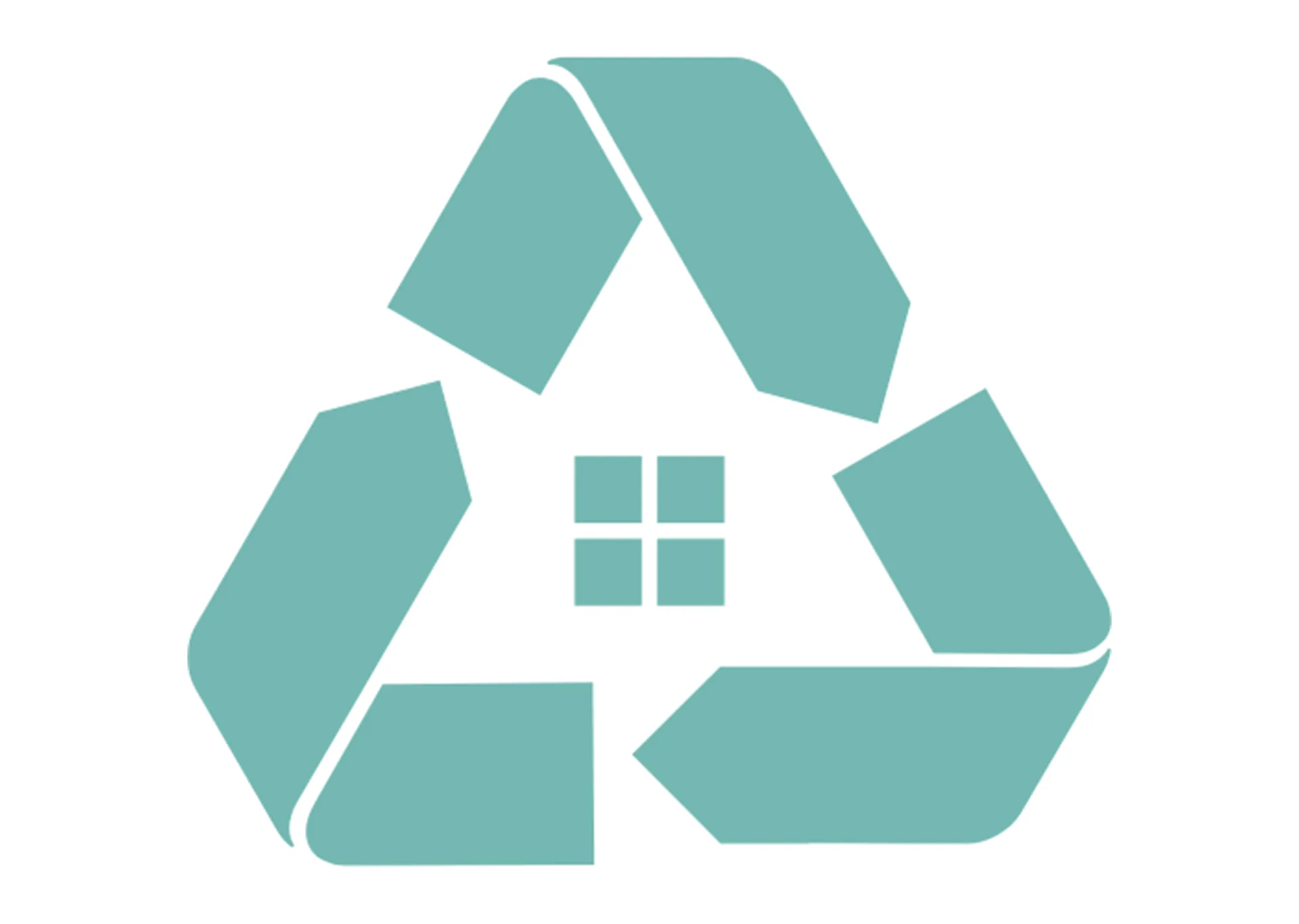
Polystyrene Recycling FAQs
Is polystyrene biodegradable?
Polystyrene is technically biodegradable, but it takes a long time to break down completely. Factors like sunlight can help accelerate the biodegradation process, but overall, polystyrene remains in the environment for an extended period. The best way to handle polystyrene, particularly EPS, is to send it to be recycled via a commercial waste collection.
How long does it take for polystyrene to decompose?
Polystyrene can take up to 500 years to decompose completely in a landfill.
Whereas, some recycling facilities can recycle polystyrene within 2 hours.
So, to help protect the environment, recycling polystyrene is a much better option!
Is polystyrene toxic to humans?
Polystyrene is not toxic to humans in its solid form, which is why it’s commonly used for takeaway containers and drink cups. However, when heated, polystyrene can release harmful toxins and chemicals.
HAVE A QUESTION FOR US?
According to figures released by Plastics Europe in its ‘Plastics – the Facts 2020’ report, close to four million tonnes of post-consumer plastic waste went for treatment in the UK through official schemes in 2018. Just 32 percent of it was recycled. We can make more progress.At Fresh Start, we are deeply committed to our responsibility toward the environment.
We are fully dedicated to minimising the amount of waste sent to landfill. We continuously assess our practices to identify opportunities for improvement.
In Manchester and the North West, one-fifth of the one million bins we collect and empty each year are designated for recycling plastics. However, we are always looking for ways to do more.

